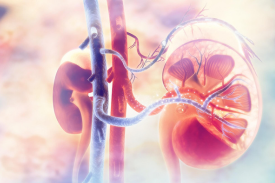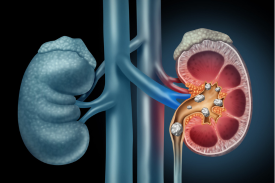Taking Charge of Your Health: Preventive Measures and Lifestyle Changes to Reduce the Risk of Urological Cancers
Urological cancers, encompassing cancers of the kidney, bladder, prostate, and other organs within the urinary system, can significantly impact an individual’s health and quality of life. While certain risk factors for these cancers, such as age and genetics, are beyond our control, there are proactive steps we can take to reduce the risk of developing urological cancers. In this article, we’ll explore preventive measures and lifestyle changes that can help safeguard against these cancers, empowering individuals to take charge of their health and well-being.
- Maintain a Healthy Weight: Obesity and excess body weight have been linked to an increased risk of several urological cancers, including kidney, bladder, and prostate cancer. Make it a goal to reach and sustain a healthy weight by adopting a balanced diet and incorporating regular physical activity into your lifestyle. Consulting with a registered dietitian and incorporating regular exercise into your routine can help you reach and maintain a healthy weight, reducing your risk of urological cancers.
- Quit Smoking: Tobacco smoke contains numerous carcinogens that can damage cells in the urinary tract and increase the risk of bladder and kidney cancer. If you smoke, quitting is one of the most important steps you can take to reduce your risk of urological cancers. Seek support from healthcare professionals, smoking cessation programs, or support groups to successfully quit smoking and improve your overall health.
- Stay Hydrated: Adequate hydration is essential for maintaining urinary tract health and reducing the risk of kidney stones, which can increase the risk of kidney cancer. Aim to drink plenty of water throughout the day, as recommended by healthcare professionals. Proper hydration helps dilute urine and flush out potentially harmful substances, minimizing the risk of urinary tract infections and stone formation.
- Eat a Balanced Diet: A diet rich in fruits, vegetables, whole grains, and lean proteins can provide essential nutrients and antioxidants that help protect against cancer. Limit intake of processed foods, red and processed meats, and foods high in sugar and unhealthy fats, which have been associated with an increased risk of urological cancers. Consulting with a registered dietitian can help you develop a nutritious eating plan tailored to your individual needs and preferences.
- Limit Alcohol Consumption: Excessive alcohol consumption has been linked to an increased risk of certain urological cancers, including bladder cancer. If you choose to drink alcohol, do so in moderation, following recommended guidelines for safe alcohol consumption. Avoid binge drinking and consider alternatives such as non-alcoholic beverages or mocktails to reduce your overall alcohol intake.
- Practice Safe: Some sexually transmitted infections (STIs) have been associated with an increased risk of certain urological cancers, such as human papillomavirus (HPV) and cervical cancer. Practicing safe sex, including the use of condoms and limiting sexual partners, can help reduce the risk of STIs and their potential long-term consequences, including urological cancers.
Summary:
In Pune, individuals seeking expert guidance on preventive measures for urological cancers can consult with Dr. Sunil Mhaske, a distinguished Consultant Urologist at Pune Institute Of Nephro Urology (PINU), recognized as one of the best urology hospitals in Pune. Dr. Mhaske and his team specialize in providing comprehensive care and personalized recommendations to help individuals reduce their risk of urological cancers and maintain optimal urinary tract health.
By implementing these preventive measures and lifestyle changes into your daily routine, you can significantly reduce your risk of developing urological cancers and improve your overall health and well-being. Remember that early detection through regular screenings and consultations with healthcare professionals is also essential for timely intervention and effective management of urological cancers. Take proactive steps today to protect your urinary tract health and reduce the burden of urological cancers tomorrow.



